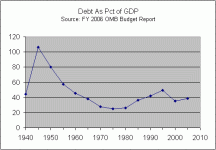What is fractional reserve banking?
Fractional reserve banking is the practice that allows all banks under the Federal Reserve system to operate on a fraction of the depositors' assets. This is usually five to 10 percent but lately is closer to zero. In other words, banks create money (credit) from thin air, by making an electronic entry into an accounting database, and lending it out at interest. This is how the vast majority of the $60 billion that commercial banks made in profit, is made.
Here is a simple analogy. Say you have a classic Ford Mustang you wish to sell, and you list it in the newspaper classifieds. Say I come by and purchase it from you for $5,000. I explain to you that I don't really have a place to keep the car, and so I'd like to keep it in your garage until I can build one of my own sometime later on.
You agree, and we part company. I now own the car, but it's still in your garage. I come by about one weekend a month to take the car out for a spin, and everything is fine.
Now you get an idea. Since I only come by on the third weekend of every month, you could "sell" the car again to someone else, as long as that other person agrees only to drive it on the first or second weekend of each month. You find another buyer and "sell" the car to her for another $5,000. You give her a fancy-looking title to the car that you created with a computer and a color laser printer. For a year or so, no problem! She drives the car on the first weekend, you clean it up on the second, and I drive it on the third. You've doubled your money, and no one is the wiser.
But trouble lurks. Eventually I build my garage and ask to have my car permanently. Now you have a problem. You've sold one asset two times, issuing two identical, official-looking titles, and now face a "run" - more than one owner wants the asset.
If that analogy sounds farcical, fictional, or nonsensical, it is because no private citizen would ever consider running a scheme like the above. Anyone caught doing it would be thrown in jail. However, that is exactly what the U.S. Federal Reserve banking system has done and is doing. Your deposits in your bank account do not actually belong to you, and they might not be available if you try to withdraw them! Fractional reserve banks operate on the assumption that everyone will not want their deposits back all at the same time.
Nonetheless, this fraud would become readily apparent if there were ever a run on the banks. If all depositors were to withdraw just 10% of their deposits, the banks would have to close their doors! Even worse, if only 3% of the public withdrew their deposits entirely, we could have a situation on our hands to dwarf the Great Depression.


